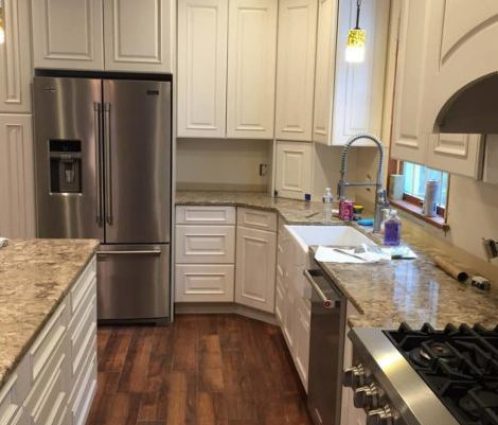
A home renovation is one of the more stressful ordeals you can go through in your life, even if you’ve done it before. It’s uncomfortable while it lasts, it can get messy if you don’t pay attention, and last but definitely not least, it can hit your bank account hard. Planning ahead can mitigate all of those factors, especially the last one – and it’s a good idea to take the time to sit down and come up with a proper plan of action if you don’t want to get caught up in a complicated situation.
Start Early
A major home renovation is not something you can plan a few days ahead of the job. This should go without saying – and yet you’d be surprised how many people put very little thought and planning into their own renovation jobs. As a result, they end up paying significantly more. There are many factors that play into this. Purchasing supplies and materials early can allow you to scout out good discounts and hundreds of deals for them. Contractors have their own schedules and contacting someone for a short-notice job is going to be more expensive. You can plan around the seasonal weather changes as well. In the end, giving yourself at least a few months – ideally half a year – before you start with the actual work is going to be very beneficial.
Extending Your Budget
After you’ve drawn the bottom line, you might come to the unpleasant realization that your budget is not actually enough to cover everything you want to do. Taking out a loan is perfectly reasonable in this situation. Just make sure that you know how you’re going to repay it, and how it will impact your budget. As long as you have a good credit score, it should be possible to get a nice extra stretch on your available funds without having to go through any uncomfortable periods later on.

Why the DIY Approach Can Be More Expensive
A big mistake you can make is to think that you’re just going to roll up your sleeves and get the job done yourself. Or at least parts of it. The problem with this is that while it may indeed save you some money in the short-term, it will very likely increase the overall cost of your project in other, unexpected ways. You will have to spend much more time on each part of the job compared to the average contractor, and you’ll also make more mistakes than them, costing you even more time and materials. Spare yourself the trouble and leave the complicated tasks in the hands of professionals.
Going Green Can Be a Money-Saver in the Long Run
As long as you’re renovating your home, now might be a good time to think about changing your approach to a greener one. This can cost a bit more in the immediate term, sure, but its impact on your budget can be significant in the long run. With a home that’s insulated better and at least partly self-sustaining in terms of energy and heating, you’ll knock off a large percentage from many of your bills. You’ll be better prepared for tomorrow too, as many of these things will likely become beneficial factors for your tax return sooner or later.
It doesn’t have to cost a great deal of money to renovate your home, at least if you give yourself enough time for the job and know what caveats to expect along the way. All things considered, it’s very likely to go smoother than you’re anticipating, and will probably not even cost you that much.

This is a collaborative guest post. The views and ideals expressed do not necessarily represent those of Mommy Ramblings.





































































































